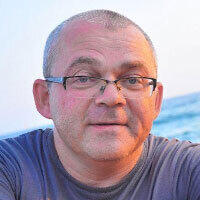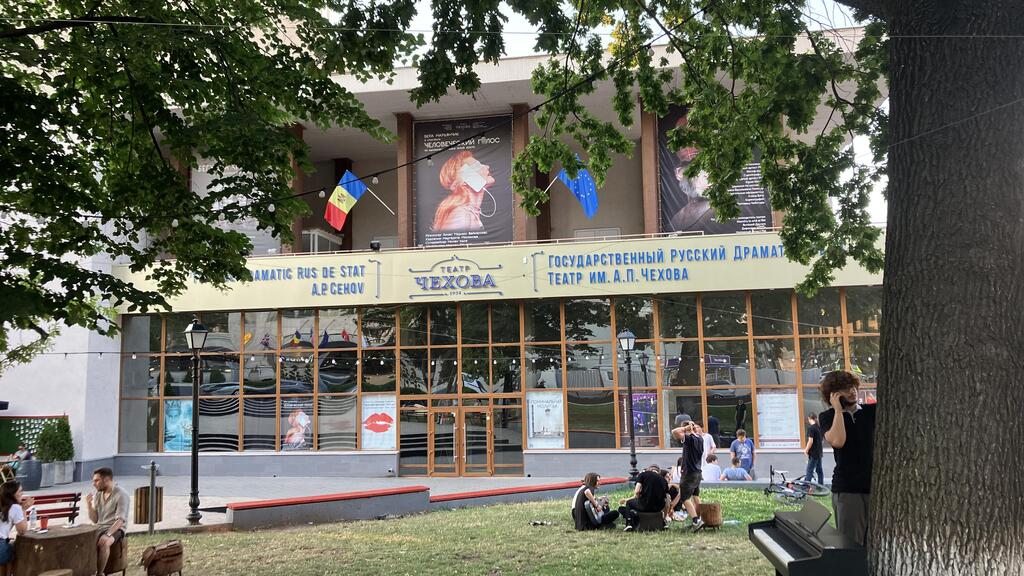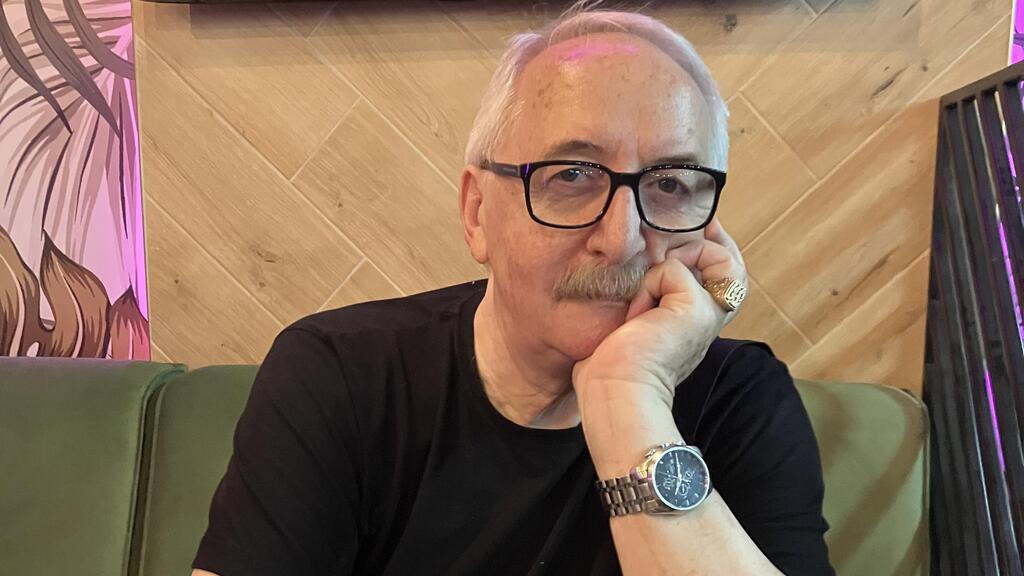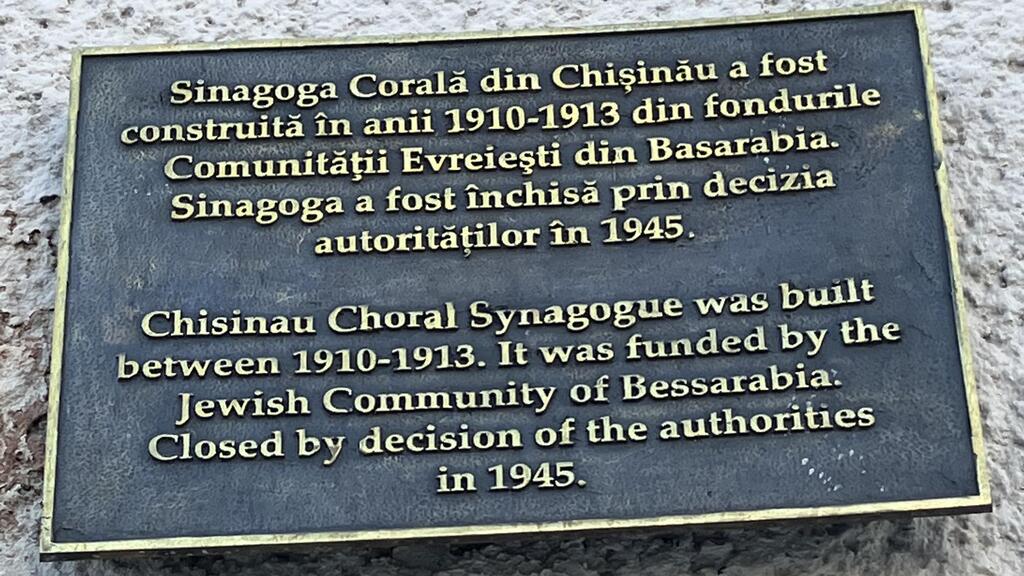Getting your Trinity Audio player ready...
An impressive theater located in Chișinău (formally Kishinev), the capital of Moldova, stands where a synagogue, built in 1913 with Jewish community funds, once stood.
More stories:
The synagogue also served as a yeshiva for Torah study but quickly became the largest and most prestigious house of Jewish worship in Chișinău, under the leadership of Chief Rabbi Yehuda Leib Tsirelson and renowned in all of Servia, for its cantors.
The synagogue was among the buildings that were nationalized in 1940. After World War II, the building was renovated and repurposed as a theater, named after Russian playwright Anton Chekhov. The theater remains in use to this day.
Theater director, Yosef Schatz, a member of the local Jewish community, has been practicing his craft for 33 years and directed 40 plays in that time. He said the theater still holds some of its Jewish influence: "This year, marking 120 years since the Kishinev pogrom, the municipality, in coordination with the Jewish community, placed a commemorative plaque on the building, stating that it was once a synagogue. It was a common practice of the Soviets to repurpose religious institutions,” he said.
What Jewish content does the theatre present?
"I directed a play based on the Israeli playwright Joshua Sobol's 'Ghetto' which takes place at the Vilna Ghetto during the Holocaust. A theatre group is established and Ghetto residents join the cast. A German officer tells the cast, 'Since you love art and truth, I’ll allow you to participate in the plays, provided I see the results,' In other words, he would continue his murder of Jews while they partake in theatre work.
"It was very important for me to show that there were people there who wanted to bring change, to establish a new order. People who also had a certain worldview. To show perspectives of peace, love, and truth."
Russian is alive in Moldova
Another example of Jewish themes can be seen in a play by a Romanian playwright which was performed at the theater for years in the early 2000s. "It's a story about three young friends: a Christian, a Jew, and a Muslim. The play raises the question of whether a Christian man can marry a Jewish woman. I always felt that this wasn't just a topic for the play, but a question that pertains to both characters, the couple. There's the religious aspect and the universal human aspect. From a human perspective, the answer is: yes, because that's what they decided.”
"In our context, according to the Jewish worldview of Moldova, whenever there were interfaith marriages, people would ask who was Jewish, the man or the woman. If it turned out that the girl was Jewish, then it was considered bad because she would supposedly have to submit to the man. If the roles were reversed, then it was seen as fine, because if the young man was Jewish, then the bride would obey Jewish law.”
“And then, the young men who married non-Jewish women would say: 'My wife is even more Jewish than I am!' In contrast to adults who had a different view. But I wanted to broaden this issue and show what happens to a Muslim, a Jew, and a Christian when the couples make a decision,” he explains.
“Essentially, we see how these three characters approach the decision to get married very differently. Throughout most of the play, the three who follow the various religions, remain alone with their thoughts, and the more the play progresses, the more we understand that the question isn’t about what’s allowed or forbidden, but about how each religion views such concepts as love, life, and relationships."
Today, Kyiv forbids plays in Russian, Russian literature, and Russian music. How challenging is it to work in Russian in Moldova?
"We are the main Russian theater, but there are two other smaller ones out of more than 15 theaters in Chișinău. Currently, there are no ideological guidelines here that would prevent plays in Russian. Our theater attracts Russian speakers, but besides that, everyone comes: Moldovans, Russians, Ukrainians. If they come, it means they are interested in our work."
Schatz was born in Chișinău. At the age of 17, he left for St. Petersburg. "I lived there for nearly 17 years until the beginning of 1980, and returned to Chișinău because my parents grew old, and I didn't have my own apartment there. I was 34 years old and couldn't find work. I was Jewish, and employers would always worry that I would leave for Israel, after being hired," he said. "But then the Soviet Union began to crumble, and all the ideological restrictions were lifted. I was invited by a prominent actress to direct her gala, which was successful, and I since then, continued working in theater."
What does the theater symbolize for you?
"It's a fairly complex job that I've been involved in for almost my entire life. I’d compare it to conducting an orchestra. The conductor assembles notes and leads the orchestra. It’s a sort of self-expression.”





